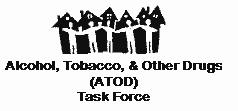|
The college level recently saw Ricky
Lannetti, a 21-year-old college football player from Lycoming
College, die on Dec. 6 from kidney failure. Both deaths seemed to be
from natural causes, according to the coroners of Lackawanna and
Lycoming counties. Both of these young athletes passed physicals and
were in great condition to play football. No one seemed to question
why they died in the prime of their lives.

Charles Fricke, coroner of Logan
County, Ill., does question these types of deaths. He states: "Creatine and
ephedra products have been linked to injuries and deaths. Without a
full toxicology screen, no one will ever know what is killing our
young athletes. We need to insist coroners and their pathologists
screen for such drugs. Ephedra goes through the blood stream rather
rapidly, and you may need to test the urine, tissue muscle or bone
marrow. This takes extra money and time, but it is worth it to be
thorough and do a professional job on behalf of your community. It
is easy to label a death as heat stroke, myocardial infarct, etc.
However, what causes a perfectly healthy athlete to die after taking
related dietary supplements or muscle builders? Will we be a part of
the solution, or a part of the problem?"
Fricke has testified before the U.S.
Senate Subcommittee on Oversight of Government Management and
Restructuring on the effects of ephedra and ephedrine. His testimony
was related to the death of Sean Riggins, a 16-year-old football
player from Lincoln Community High School in Illinois. Fricke
visited the high school with Lincoln city detectives and started
interviewing school officials, coaches and players. There he would
find the lead he was hoping for, but critical information arrived in
the mail to his office. Sean's fellow teammates wrote letters
stating that they were using ephedra (Yellow Jackets) that they
bought at a local store. The product was labeled as a dietary
supplement and high energizer containing 25 milligrams ephedra and
300 milligrams of caffeine.
Fricke stated, "Sean's toxicology test
revealed lidocaine in the blood, most likely related to
cardiopulmonary resuscitation. No other drugs or medications were
detected in the blood."
Fricke tested urine, tissue muscle and
bone marrow. He reported: "The test results revealed creatine kinase
(CK), which is normally 38 to 174. Sean Riggins had a CK level of
3,500. His LD (liver enzyme that is released during cardiac arrest)
has a normal range of 91 to 180. Sean Riggins had a LD level of 785.
His troponin (enzyme specific to the heart muscle) was 100; normal
is .04 and heart attack range is 3 to 6. The (troponin) is a better
marker than CK."
[to top of second column in
this article]
 |

Coroner Fricke found the cause of death
of Sean Riggins to be acute myocardial infarction due to
vasoconstrictive properties. No other anatomic or structural
abnormality of coronary arteries sufficient to cause myocardial
infarction was identified during autopsy. There were no
atherosclerotic plaques or acute thrombosis in the coronary
arteries. No other drugs, such as cocaine, which could cause
vasospasm of the coronary arteries, were detected in the blood or
urine.
Ephedra stimulates the central nervous
system and increases heart rate while constricting blood vessels and
increasing blood pressure. The state of Illinois has banned the sale
of ephedra. Fricke could have ruled the death myocardial infarction,
but he didn't.

The Pennsylvania Interscholastic
Athletic Association has banned ephedra and ephedrine. However, the
PIAA has no enforcement or penalties for offending schools. They
also lack a testing plan to detect ephedra and ephedrine use.
Currently, they leave it to the schools to punish the offending
athlete.
This is like letting a robber set his
own punishment.
When asked why schools are allowed to
determine punishment, Melissa Mertz of the PIAA replied, "We have
done it this way for 95 years."
Times have changed, and so should their
rules.
The federal government deregulated
dietary supplements in 1994, and the deaths have been adding up.
Unfortunately, it's too late to punish dead children.

Currently, the PIAA bans ephedra and
ephedrine; the NCAA bans ephedra and ephedrine, anabolic steroids,
and 100 other substances. Creatine is not a banned dietary
supplement by either association. Creatine primarily affects the
liver and kidneys. The NCAA has a testing plan in place.
For more information, see the following
websites:
[Mark
Zovak]
 |

